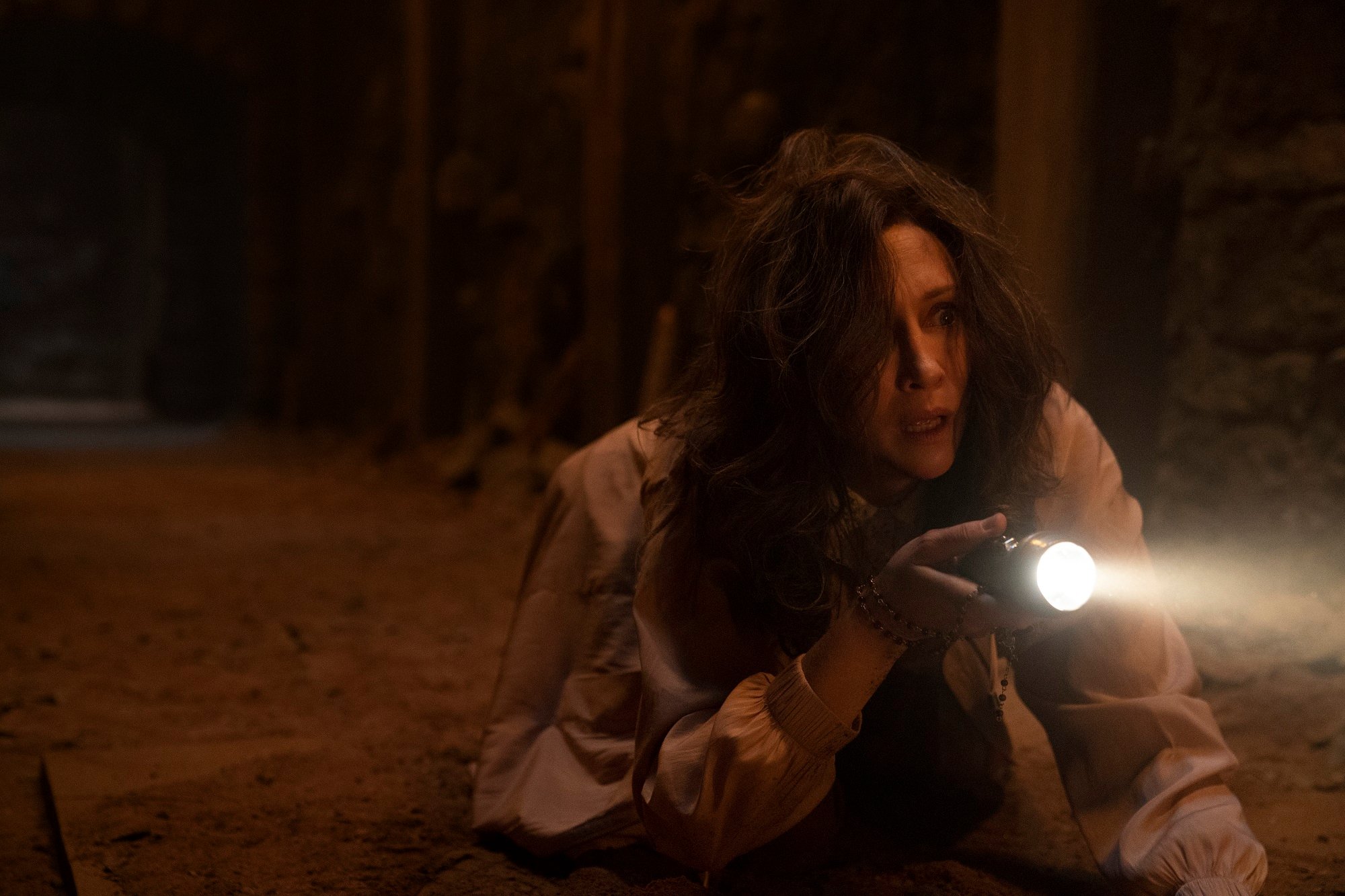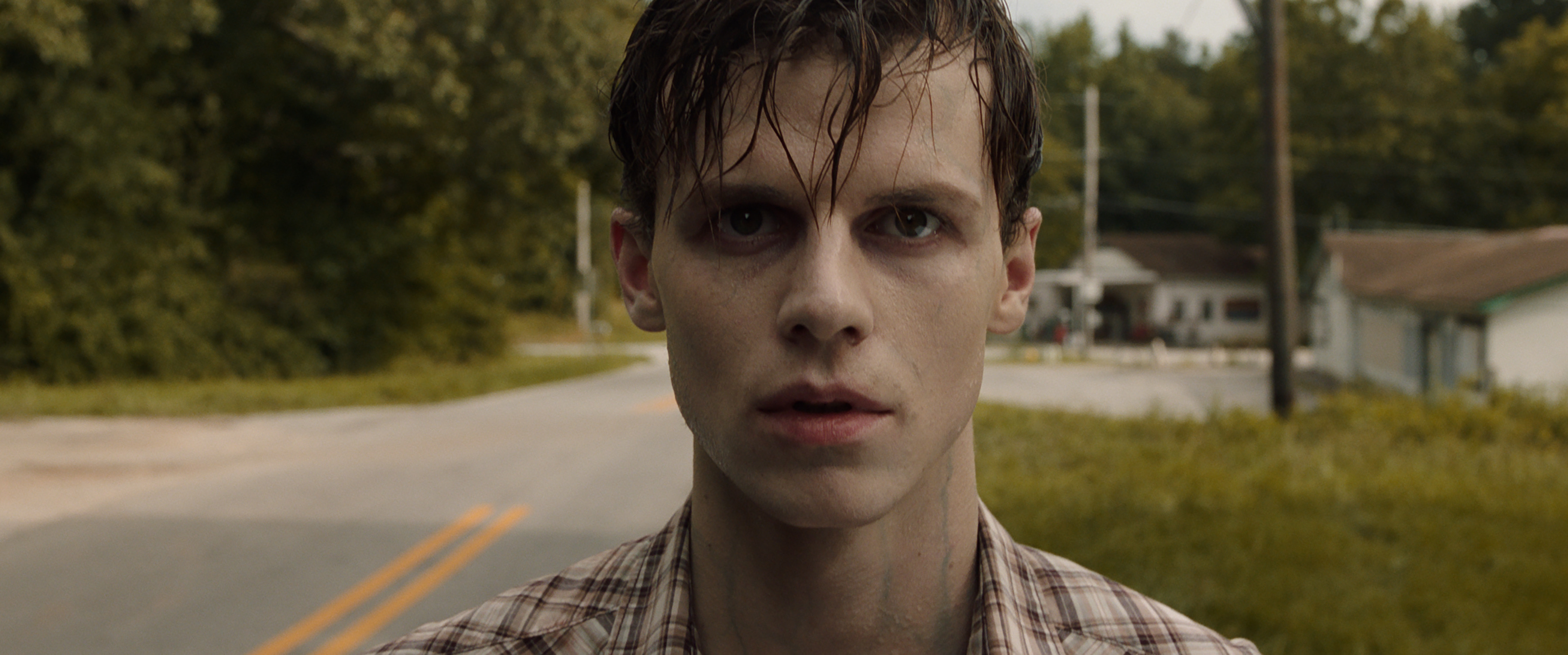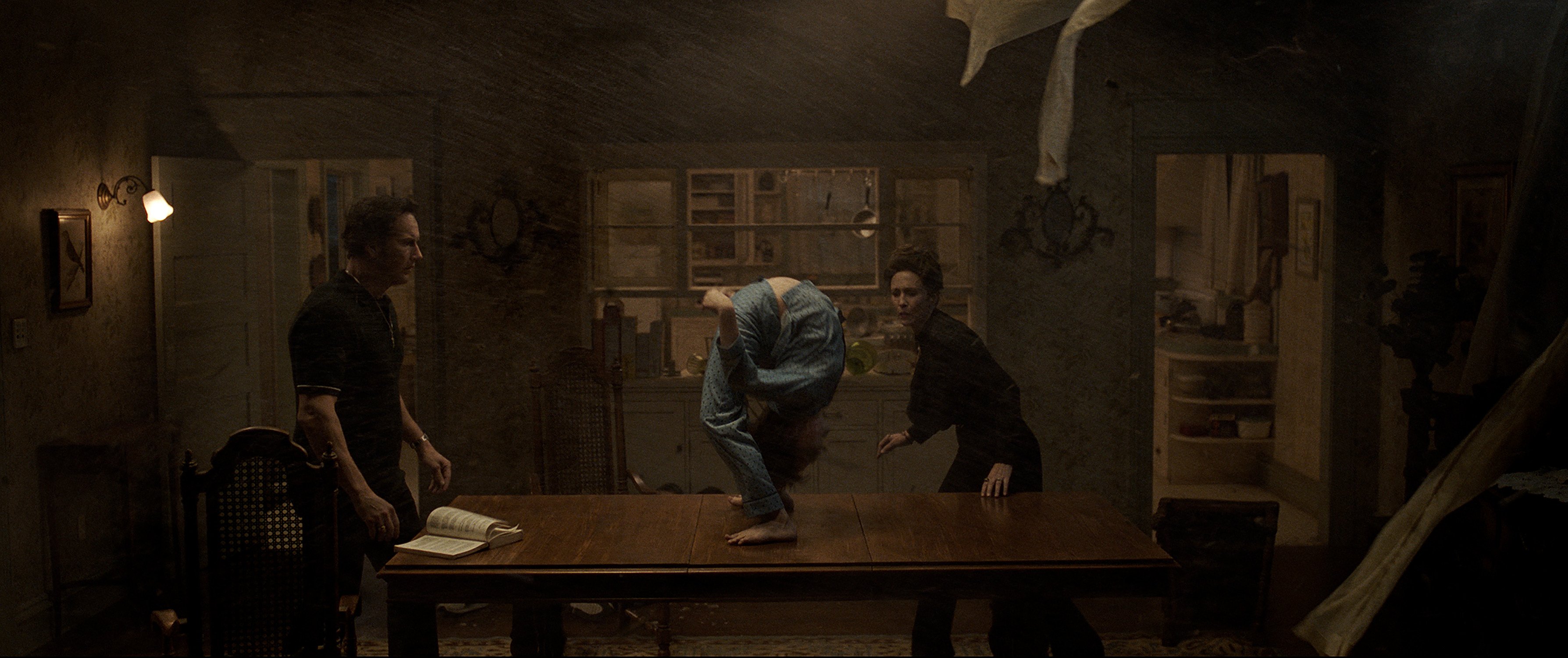‘The Conjuring: The Devil Made Me Do It’ Is the Darkest Film In the Horror Trilogy For 1 Reason
The Conjuring movies are already pretty dark horror movies. So when the producer says The Conjuring: The Devil Made Me Do It is darker than the other two, that’s saying something.
Producers Peter Safran and James Wan spoke at a Zoom press conference for The Conjuring: The Devil Made Me Do It. Safran and Wan discussed what makes the third Conjuring the darkest one of all.

Is ‘The Conjuring: The Devil Made Me Do It’ a true story?
The Devil Made Me Do It is based on the Arne Johnson case. Johnson served five years for a manslaughter sentence, but Ed and Lorraine Warren presented evidence that Johnson was possessed at the time of the murder. The movie is about the Warrens (Vera Farmiga and Patrick Wilson) proving that. Ruairi O’Connor plays Johnson in the film.
The Johnson case is a matter of court record. The Warrens did perform an exorcism for the Glatzel family on their youngest son David. Johnson claimed the demon left David’s body and entered his. Safran said the victim of Johnson’s case, Alan Bono, necessarily made The Devil Made Me Do It the darkest Conjuring yet.

“Predominantly because it’s a true story that involves a murder, there’s a real victim in this case,” Safran said. “That is not just a family being terrorized by something unholy. In this case, there was a real murder and a real victim, and I think inherently that makes this the darkest of the movies. We were always very sensitive about the fact that there was a real victim in this. Actually many victims, but there was really one murder victim in this.”
It’s still a ‘Conjuring’ movie
Safran acknowledged that The Conjuring movies are only inspired by the accounts of the real-life Warrens. Even The Devil Made Me Do It takes artistic license.
“Obviously, we’re making movies,” Safran said. “So we base them in the real case files and then we dramatize them as we see fit to make the best possible experience for the audience, to tell the best story. In terms of the scare sequences, we can go to places that were not necessarily based in truth, but are just great original sequences that audiences are going to get excited by. So I think we’ve never pulled back on a scare sequence because we said it didn’t fit within the fact pattern of what actually happened in the case, but we are always conscious of that relationship between Ed and Lorraine. So we make sure that we would never write anything that Ed and Lorraine wouldn’t do.”
‘The Devil Made Me Do It’ takes Ed and Lorraine Warren into the ‘80s
Ed and Lorraine Warren practiced from the ‘60s to his death in 2006 and hers in 2019. Their most famous caes occurred in the ‘60s and ‘70s. The first two Conjurings portrayed their Annabelle Higgins and Enfield Poltergeist investgiations. The Devil Made Me Do It marks the Warrens entering the ’80s, as the event occurred in 1981.
“It just felt like the natural progression, because we had spent a lot of time in the ‘70s,” Wan said. “Ed and Lorraine Warren, their cases and their careers went from the ’60s, ’70s, ’80s, and into the ’90s, and it just felt like the natural progression for us to kind of move into. Aesthetically, it just felt like it was the right thing to do. We’d exhausted the ’70s look, and the ’80s was the natural way to go.”

The Devil Made Me Do It dosn’t take a neon approach to the ’80s. It’s still early in the decade, and there’s still plenty of darkness from which Conjuring spirits can emerge.
“The movies that we did, they were set in the ‘70s, but it wasn’t the disco ‘70s,” Safran said. “So the change for Ed and Lorraine between the ‘70s and ‘80s is not so dramatic for us. So for us, it really was just being true to the story. I don’t think we really were too concerned about what else was going on in terms of film or television creation in that era.”


